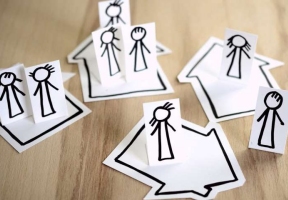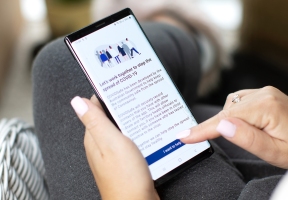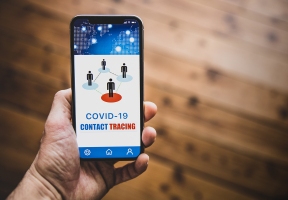By: Ashmar Mandou
 As the City of Chicago commits to reopening more businesses in the coming weeks, the Chicago Department of Public Health announced its plan to expand contact tracing for COVID-19 cases at the grassroots level.
As the City of Chicago commits to reopening more businesses in the coming weeks, the Chicago Department of Public Health announced its plan to expand contact tracing for COVID-19 cases at the grassroots level.
This operation includes a Request for Proposals (RFP), in which the City has assigned $56 million in COVID-19 relief funding from the CDC and the Illinois Department of Public Health for community organizations in areas of high economic hardship to train and certify a 600-person workforce to support contact tracing.
“As we ease out of shelter in place, it is more important than ever to implement all proven practices to prevent further spread of the virus,” said CDPH Commissioner, Allison Arwady, M.D. “Contact tracing at the community-level will help us build out our public health infrastructure to reach even more Chicagoans. This approach provides the opportunity not only to operationalize an important tool in the fight against COVID-19, but also leverage the economic investment sourced from federal COVID relief funding to create thriving wage jobs and address long-standing health inequities caused by unequal economic opportunity and access to education.”
The $56 million RFP released seeks organizations to apply to lead coordination of contact tracing and resource referral efforts across the city. The RFP mandates that the lead agency will be required to sub-grant 85 percent of contact tracing funding to at least 30 neighborhood-based organizations located within, or primarily serving residents of, communities of high economic hardship.
“Federally qualified health centers can play a key role in supporting contact tracing of COVID-19,” said David Munar, president and CEO of Howard Brown Health. “Not only have we been supporting contact tracing of other communicable disease like STIs for many years, but we can help link contacts to healthcare services to ensure their needs are met if they do test positive for COVID.”
Employees hired through this program will be supported by an “Earn-and-Learn” program that helps them pursue higher education and credentialing, which will give contact tracers the ability to pursue stable, middle-income jobs that can support their livelihoods beyond the height of the pandemic. Contact tracers will earn $20 an hour with supervisors earning $24 an hour. CDPH will also require that applicants meet these minimum salary requirements and provide full health benefits. Organizations who are not able to meet these criteria will be able to submit a written statement to provide an explanation.











